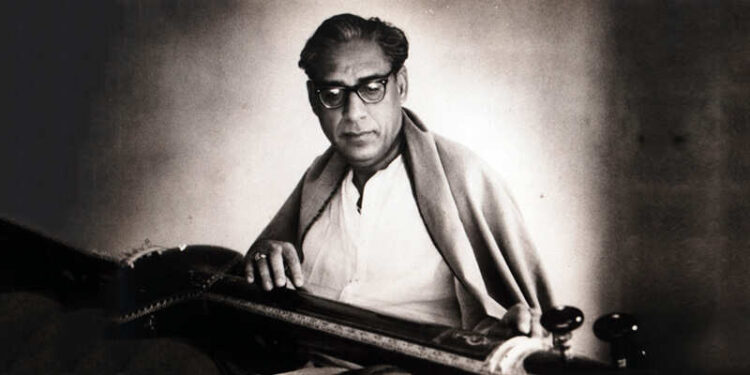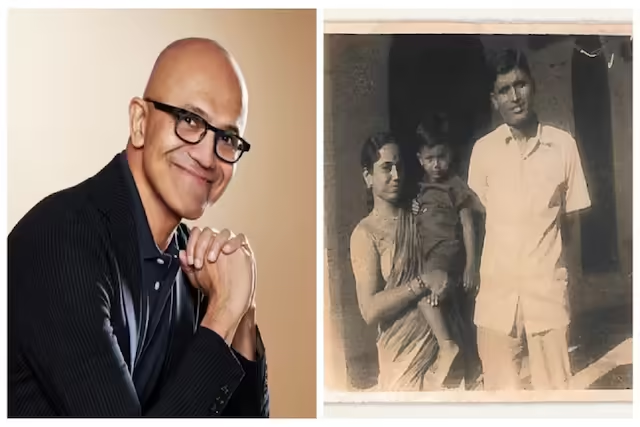Entertainment News Desk !!! Ustad Amir Khan (English: Ustad Amir Khan, born: August 15, 1912; 13 February 1974) was India’s famous classical music singer. Ustad Amir Khan was awarded the Padma Bhushan in 1971 by the Government of India in the field of art.
Life introduction
Ustad Amir Khan was born on 15 August 1912 in a music family in Indore. Father Shahmir Khan was a sarangi player of Bhendi Bazaar Gharana, who used to play in the royal family of Holkar in Indore. His grandfather, Gengh Khan, was a singer in the court of Bahadur Shah Zafar. Amir Ali’s mother died when he was only nine years old. Amir and his younger brother Bashir, who later became a sarangi player in Akashvani Indore, started growing up learning from his father. But soon his father realized that Amir’s trend is more towards singing more than playing. So he started training Amir Ali more singing. Being in this line himself, Amir Ali started getting correct training and he continued to strengthen his skills and strong. Amir also learned tabla from one of his maternal uncle. On the suggestion of his father, Amir Ali worked with Maharaj Chakradhar Singh at Raigad Institute in Madhya Pradesh in 1936, but he stayed there only one year. His father died in 1937. By the way, Amir Khan moved to Bombay (now Mumbai) in 1934 and started performing on stage. Meanwhile, he stayed in Delhi for a few years and also in Calcutta (now Kolkata), but after partition, it passed permanently in Bombay.[1]
Singing style
As far as the question of Ustad Amir Khan’s singing is concerned, he made his style Akhtiyar, which gives a glimpse of Abdul Wahid Khan’s delayed style, Rajab Ali Khan’s Tan and Aman Ali Khan’s Merukhand. In this particular style of Indore Gharana, a mixture of spirituality, dhrupad and thought is found. Ustad Amir Khan had surprised everyone by bringing a type of “edge” in the “highly dense rhythm”. In this edge, later on the sargam, taunte, speech, which also has merukhandi organ, and finally introduced the middle-bull or rapid rhythm, small care or rabidar tarana. Ustad Amir Khan believed that poetry has a huge hand in any thought composition, on this side he has written many composes in the name of ‘Sur Rang’ himself. Amir Khan made Tarana popular. Jhumra and Ekatal used to use them in their singing, and they used to ask for simple contracts from the tabla player who gave the accompaniment.
Ustad Amir Khan Saheb was such a funk in Hindustani classical music that can never be forgotten. Ustad Amir Khan Saheb of Indore Gharana, who is considered to be the Azim-o-Shan Shaheshh of thought. Despite this, Khan Saheb grew up around the princely state of Indore, his father and grandfather were in the form of music in the same princely state, due to which he named his family as Indore. There was no princely thinking or encouragement in his singing style, but in his style a disinterest is heard, which easily knows that he was actually Sufi. Ustad Amir Khan used to connect himself to the house of Amir Khusro, a tradition in which the musicians who used to sit around the Sufi saints would sit around a supernatural herd and sing their cowls and children. Where Mausiki and music were considered a source of worship. And as Ustad Amir Khan Saheb started listening to the artists of his time, he created a style from his own thinking that ran away from the funds of the princely state, where the definition of music was meditation and worship. There was no talk of wooing kings and Maharajas here, nor in the eyes of the Maharaja, the matter of winning other artists. No performance of music items. If seen, if this unique discovery of singing is said in one word, then the word was simplicity, which is considered a tremendous word in the language of Sufis.
There are different varieties of voice, and these different varieties made the idea singers, but there was no variety of the voice of Ustad Amir Khan Saheb. He made it with just an incomplete sense. You do not tear the throat and throw the sound out. You put the voice inside you until someone holds it from inside. Once this happens, then you should hear your voice, as if hearing it. There was no condition of this voice. Neither would he understand this voice, nor tries to make it beautiful. Neither this tone would do a drama, nor tries to become adopted on the top. With this voice, someone used to sing and with this tone, Ustad Amir Khan became Amir Khan. In the language of Sufis, it is called Fana, to erase itself in itself, then keep it alive from that erasing. It is a matter of pride for Hindustani classical music that after Ustad Amir Khan Saheb, many generations- singers and playing- started loving them to the extent of insanity. There came a time when far away, without listening to their music, it was now impossible to sing. The truth is that the corner of the needle had done the whole.
great singer
The rejection of the talent of Ustad Amir Khan began when he was full of dreams of becoming a skilled singer of classical music and in Raigad Durbar, like a young singer in the Raigad Durbar, one in the music-world of his unique talent Were engaged in making a common place. Once his refugee sent him as a participant in a grand music meeting to be held in Mirzapur, so that he would go there and return to get an effective presence of his singing. But, as he started singing his singing, all-round began to become a panic and the voices of his opposition began to arise from the rasikas, which soon turned into a noise. Famous singers Inayat Khan, Fayaz Khan and Kesharbai were also present in that music meeting to make their presentations. Although these senior singers urged the community to listen to them, but the incontinued-Shruta community completely ignored that request. The insult to this incident gave the young singer Amir Khan with determination to become ‘rich’. He knew, a singer’s ‘prosperity’, his ‘voice’ as well as ‘difficult practice’. As a result, he returned to his hometown Indore, where his tradition and the capital of ancestors were buried. His father was Ustad Shahmi Khan, who had a deep connection with Anjanibai Malpekar, the famous singer of Bhindi Bazaar Gharana. He used to accompany him on Sarangi. The father’s real desire was also that his son Amir Khan should become a famous Sarangi player of his time. He used to think, this is the drowning ilem. Because, Sarangi’s reputation was quite weak and she was only an essential part of the brothels associated with the brothels, but they also knew that the voices of Sarangi were the same against the human gorge. And this capital near them will reach the son and be intact.
However, with the return of the son, he also had a kind of comfort that he may again increase his old and traditional attachment towards his ancestral instrument. But, in the subconscious world of the young singer ‘Amir’, there was a compassion of insults in the music meeting of Mirzapur, it was not possible to forget a book, due to which she insisted on giving a big and creative-answer Had done He wanted to answer his ‘insult’ through ‘Kant’, not ‘instrument’, not ‘instrument’. However, it was a period of deep self-struggle of a young creative-mind, where he had to make him ‘invented’ by doing something from within. As a result, he made the voice-meditation his support, and such meditation brought him to his will and left him near his will. Perhaps the reason for this was that later, when Amir Khan Saheb stood in the queue of the country’s best singers, he used to reject big invitations and proposals that ‘his’ Riyaz’ in coming and going there Will be very damaged. ‘[3]
Film music
Ustad Amir Khan’s contribution in film music is also notable. He made his voice for films like ‘Baiju Bawra’, ‘Shabab’, ‘Jhanak Jhanak Payal Baje’, ‘Ragini’, and ‘Gunj Rahat Shehnai’. His singing was also heard in the bungalow film ‘Kushadhito Pashan’.
Honor and award
Ustad Amir Khan was awarded the Sangeet Natak Akademi Award in 1967 and Padma Bhushan in 1971 for his remarkable contribution in the field of music.
Special contribution
It is said that Ustad Amir Khan gave a thought to Hindustani classical music. Sure, because they used to say that the deeper your foundation, the higher your building, but even more, he described the music as an alphabet, which is a descending of the raga, as if the clock rotates. This is also the same for meditation. And while practicing this principle, he got the shape of meditation in his singing, and he started singing a descending head, where the raga also really opens. This was the reason that he also opened the voice of the voice, and made a singing. It is also known that Ustad Amir Khan gave Hindustani classical music ‘Paj’ i.e. his disrespect, which used to listen to his delayed thought. The thing behind this was that music, the never -erasing hunger of the soul, is thought of in the first soul, and then it is interviewed. For this reason, Khan Saheb put ‘Paj’ ahead and sang the lyrical Ficra. His music would have been conducted untold, which we would hear before. This was his thinking. Because of which his singing of Indore is called the first introverted house of classical music.
Death
In a road accident, Ustad Amir Khan Saheb left us forever on 13 February 1974.






